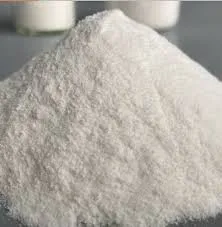
നവം . 08, 2024 01:48 Back to list
Purchase Hydroxyethyl Cellulose for Your Quality Needs Today
Understanding Hydroxyethyl Cellulose Benefits and Applications
Hydroxyethyl cellulose (HEC) is a versatile non-ionic cellulose ether that has gained considerable attention across various industries due to its unique properties. Derived from natural cellulose, HEC is widely recognized for its excellent thickening, stabilizing, and film-forming abilities. This article aims to explore the benefits, applications, and considerations when buying hydroxyethyl cellulose.
What is Hydroxyethyl Cellulose?
Hydroxyethyl cellulose is a water-soluble polymer produced from the etherification of cellulose with ethylene oxide. This modification allows HEC to dissolve in cold water, forming a gel-like solution. The resulting viscosity can be easily adjusted by altering the concentration of HEC in the preparation, which makes it highly adaptable for different formulations.
Benefits of Hydroxyethyl Cellulose
1. Thickening Agent One of the most common uses of HEC is as a thickening agent in various products. It can enhance the viscosity of liquids, creating a smoother and more consistent texture. This property is particularly beneficial in cosmetic products, personal care items, and household cleaners.
2. Stabilization HEC acts as a stabilizer in emulsions, preventing the separation of oil and water phases. This stability is crucial in the formulation of creams, lotions, and food products, ensuring that the ingredients remain uniformly mixed and effective.
3. Film-Forming Capabilities Hydroxyethyl cellulose can create thin films when applied, making it suitable for use in coatings, adhesives, and even packaging materials. These films can provide barriers against moisture and oxygen, enhancing the shelf life of products.
4. Biodegradable and Non-Toxic Since HEC is derived from natural cellulose, it is considered environmentally friendly. It is biodegradable and non-toxic, making it a safer option for both consumers and manufacturers. This aligns well with the growing demand for sustainable products in today’s market.
5. Versatility HEC can be used in a wide array of products, including pharmaceuticals, food, personal care products, and construction materials. Its adaptability allows for innovative applications across diverse industries.
Applications of Hydroxyethyl Cellulose
1. Cosmetics and Personal Care In the cosmetic industry, HEC is frequently used in creams, lotions, shampoos, and gels. Its thickening and stabilizing properties help create luxurious textures while improving the overall performance of the products.
buy hydroxyethyl cellulose

2. Food Industry In food applications, HEC serves as a thickener and stabilizer in sauces, dressings, and desserts. It can improve the mouthfeel and consistency of these products, enhancing the sensory experience for consumers.
3. Pharmaceuticals HEC is often used in drug formulations, including ointments and controlled-release medications. Its ability to form films can help in the sustained release of active ingredients, improving the efficacy of the drug.
4. Construction In the construction industry, HEC is used as an additive in cement and mortar formulations. It helps improve workability and water retention, making it easier to apply and enhancing the performance of construction materials.
5. Oil and Gas HEC is utilized in drilling fluids and other applications in the oil and gas industry, providing viscosity control and stabilizing solid particles.
Considerations When Buying Hydroxyethyl Cellulose
When purchasing hydroxyethyl cellulose, several factors should be considered
- Purity and Quality Ensure that the HEC you purchase meets industry standards and specifications to guarantee performance. Look for suppliers that provide certificates of analysis.
- Viscosity Grade HEC is available in various viscosity grades. Choose the grade that suits your specific application needs.
- Supplier Reputation It’s essential to buy HEC from reputable suppliers known for quality and reliability. Reviews and recommendations can guide you in selecting the right source.
- Regulatory Compliance Check that the HEC is compliant with relevant regulations, especially for food and cosmetic applications.
Conclusion
Hydroxyethyl cellulose is a highly valuable ingredient across multiple industries, offering a range of benefits from thickening to stabilization. Whether you are in the cosmetics, food, pharmaceutical, or construction industry, understanding the properties and applications of HEC will help you make informed decisions when purchasing this versatile polymer. As the demand for sustainable and effective solutions grows, hydroxyethyl cellulose remains at the forefront of innovation, providing endless possibilities for product development.
-
The Widespread Application of Redispersible Powder in Construction and Building Materials
NewsMay.16,2025
-
The Widespread Application of Hpmc in the Detergent Industry
NewsMay.16,2025
-
The Main Applications of Hydroxyethyl Cellulose in Paints and Coatings
NewsMay.16,2025
-
Mortar Bonding Agent: the Key to Enhancing the Adhesion Between New and Old Mortar Layers and Between Mortar and Different Substrates
NewsMay.16,2025
-
HPMC: Application as a thickener and excipient
NewsMay.16,2025
-
Hec Cellulose Cellulose: Multi functional dispersants and high-efficiency thickeners
NewsMay.16,2025







